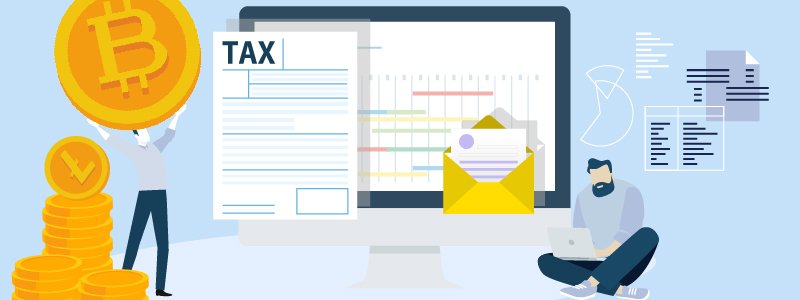Cryptocurrency tax time can be stressful for crypto traders, especially for DIY crypto tax reporting. In this article, we’ll present 5 common crypto tax mistakes.
Doing your own cryptocurrency tax reporting can be a time consuming and complicated process. There are many factors to consider when doing your own crypto tax report, such as the number of trades you’ve performed, mining income, forks, transfer, airdrops, chain splits, and gifted or donated crypto.
In most cases, this information is spread across multiple exchanges. Aggregating and sorting all tax-relevant trading data can be difficult. There are many tax software solutions specifically designed for cryptocurrency tax that can make DIY crypto tax reporting easier, but these solutions often don’t ensure that traders avoid common tax mistakes.
In this article, we’ll present the five most common crypto tax mistakes made by Australian crypto traders.
1. Failing to Include Trade History from Previous Years
Ensuring that you’ve included all trading data from previous years is an essential element of the tax reporting process. Many traders make the mistake of including data only from the previous tax year.
It’s important to include trade history from previous years when doing your own crypto tax, as costs basis is determined based on the date on which cryptocurrency assets are acquired. Failing to include information relevant to the cost basis calculation of your crypto assets could potentially result in a far higher tax bill than if you accurately record all historical trade information.
2. Failing to Include all Trade Data from Every Exchange
It’s essential to include trade data from every exchange that you’ve traded on — even international exchanges or exchanges that don’t require KYC or identity information. The ATO is closely scrutinizing the trading behaviour of all Australian crypto traders, so ensuring you’ve disclosed all trade data is extremely important.
3. Forgetting About “Free” Crypto — Forks, Airdrops, & Splits
While cryptocurrency obtained from airdrops, forks, and chain splits may be “free,” the tax man definitely wants to know about it. Many traders that receive cryptocurrency through these events fail to track fork or airdrop windfalls — if you don’t classify cryptocurrency obtained through airdrops and forks as such, it’s highly likely that you will be taxed at a higher rate.
4. Failing to Classify Crypto as Income
Not all cryptocurrency related actions are subject to capital gains tax. The sale of cryptocurrency is typically subject to CGT, but cryptocurrency obtained through mining or paid as compensation for a job or service may be treated as income for tax purposes.
If you receive cryptocurrency from a business crypto mining operation, it’s important to classify this cryptocurrency as income. If you’re not sure whether your cryptocurrency mining efforts meet the requirements to be classified as a business, check out the Fullstack guide on Cryptocurrency Mining and Tax.
5. Not Filing Crypto Losses
Most traders are aware of the fact that they will be taxed on their cryptocurrency gains, but it’s also possible in some cases to use crypto losses to reduce the total amount of taxable income. If you’ve experienced cryptocurrency losses, it’s possible that you may be able to claim losses in the same or subsequent tax years.
Should I Use a Professional Crypto Tax Accountant?
Performing a basic cryptocurrency tax report is relatively straightforward for intermittent traders. If you’re a full-time crypto trader or have performed a large number of trades within the tax year, however, you may want to consider engaging the services of a tax professional in order to ensure you are following an effective tax strategy.
If you’ve traded cryptocurrency over the last year it’s essential that you ensure you’ve filed your crypto taxes correctly in order to avoid over-taxation. If you’re not sure whether you’re following the best crypto tax strategy, you probably need an expert accountant. Get in touch with Fullstack for crypto tax advice today.
Was this article helpful?
Related Posts
- Cryptocurrency Mining Taxes
If you're currently mining crypto, it's important to learn how cryptocurrency mining is taxed. This…
- Tax Treatment of Cryptocurrency Exchanges in Australia
Crypto currency exchanges are critical to the crypto market ecosystem — but how are they…
- Cryptocurrency and GST
If you're into cryptocurrency, this guide will help you know how the Goods & Services…
- Cryptocurrency Tax Efficiency Strategies of the Best Traders
The cryptocurrency market has exploded in value over the last decade, creating an entirely new…

















